Even without its noteworthy status as the first outright thriller to come out of Laos, Anysay Keola’s At the Horizon would still be one of the more intriguing and entertaining genre films you could catch this year. With its chronologically fractured narrative, this low budget, socially relevant kidnapping tale depicts the meeting of two normally divided worlds: one embodied in the reckless, self-centred Sin, whose wealthy parents act as insurance against any negative consequences for his actions; the other represented by the (literally and figuratively) voiceless Lud, a working man who finds comfort in his wife and daughter. Together these two leads form the raging centre of a tensely edited tragedy characterised by feelings of loss beyond comprehension and anger without fulfilment.
Director Anysay Keola speaks to FilmDoo about this stirring, economically crafted debut.
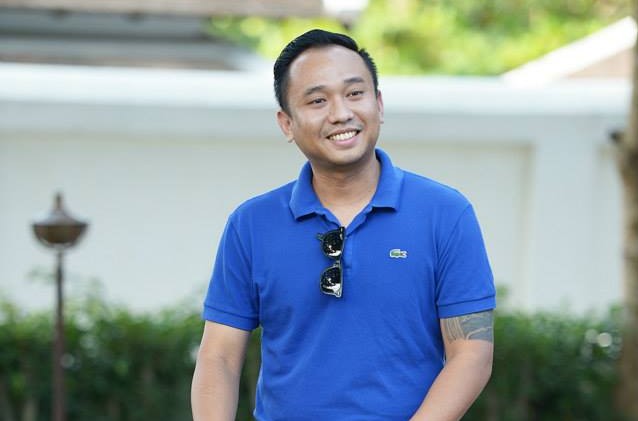
Why has no one made a crime thriller in Laos like At the Horizon before?
The censorship before 2011 was quite tight. Depictions of violence among Lao people was what worried authorities a lot at the time, so this genre of movie had never been approved, and not many Lao filmmakers at the time wanted to touch this risk of rejection.
The At the Horizon script was rejected at the beginning, but I asked for a special condition to get filming approval for my Thesis film, for academic purposes. Once the film was finished, I would never release it to the public except at my university. This way, the authority gave me a permit for filming.
Fortunately, after the film was done, I had to screen it for the director of the cinema department for his approval first, and it turned out that he liked the film and understood the overall theme that I wanted to express, which incorporates the violence only as a small factor – it’s not what drives the film. So, in the end, I’m happy to compromise by having an alternative ending and blurring out gun and blood shots. This way I could officially release the film in Laos cinemas in 2012.
What made you want to tell this particular story?
Growing up in Vientiane, the capital city of Laos, I’ve seen great changes economically and a big, widening gap between the rich and poor. I also witnessed a night life when I was teenager, and saw how spoiled rich teenagers take their privilege for granted. One young man claimed proudly that he had already killed people in a car accident before he got into a fight in a night club. This kind of attitude inspired me to write a story about it.
Did budgetary constrictions have much of an impact on how this story was told?
It didn’t impact on how the story was told. But it had an impact on the production value overall. For instance, I couldn’t have a better/smoother camera move since we couldn’t afford to rent good grips equipment from Thailand. Or I couldn’t have neater special makeup since we could only afford to pay special makeup artists to work for us for 2 days, so I had to compromise the quality for less to be able to wrap up the production within the budget.
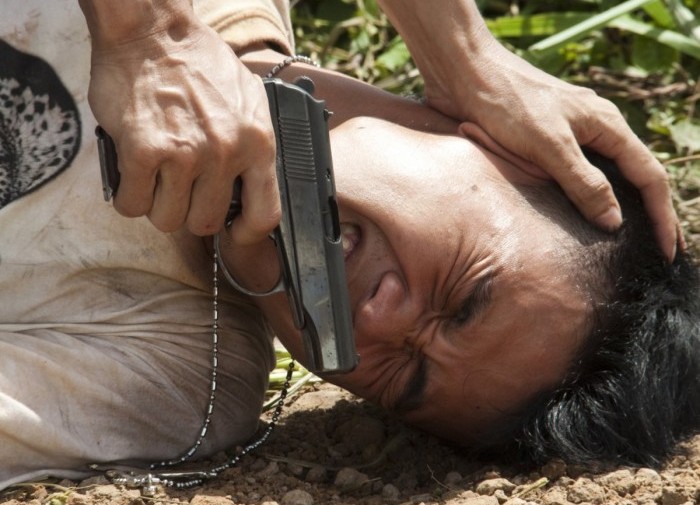
How have audiences in Laos responded to the film?
Some see it as a new generation of Lao film and they support us with good feedback. And since movie culture in Laos in still young, after the dead era of cinema theatre for almost 30 years, many audiences don’t have a background of watching alternative/independent movies. Many of them are used to watching Hollywood blockbusters and Thai soap operas, so many people are still not familiar with how stories like At the Horizon can be told non-chronologically, and many are upset about how the film ends.
You were also involved in the romantic omnibus film Vientiane in Love. What was the inspiration for your particular segment, ‘Longing for Love’?
For this project, I challenged myself to make a “romantic-comedy” genre film, which is a kind of movie that I have never be able to write before. Along the way, I learned how to apply a different cinema language that fits for its genre. So it was a good learning project for me.
Have you been working on any new projects since these ones?
My latest movie is a drama film titled Noy – Above It All. I have also experimented with a different cinematic language from the At the Horizon movie. In 2016, I’m currently working on a new project with an investor who wants to makes another mainstream romantic comedy film, so I’d like to take this opportunity to challenge myself again.

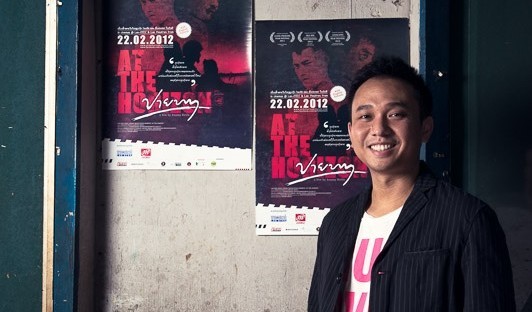
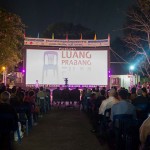
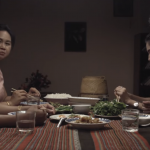
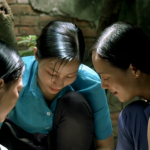

At the Horizon can elicit very strong emotions, as it did for me. I was reduced to tears during that scene where Lud broke down after Sin discovered who he was when he saw the wallet and the daughter’s shoes. A very gripping and emotional scene!! I would have preferred that Lud was spared but afterwards I realized that maybe it was what Lud really wanted, death, just not with his own hands, so that he can at last join his family, which is what the closing scene indeed was; their family, complete and happy, as they travel towards the horizon..It’s one film that would stay in my memory,that’s for sure!